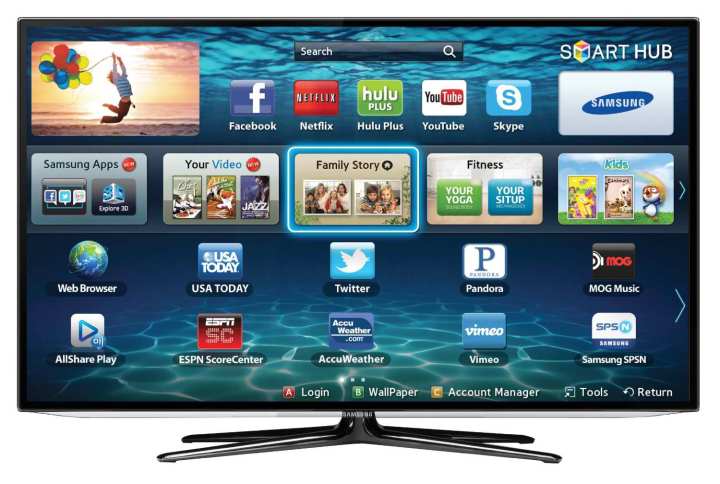
This week, a number of reddit, users noticed ads popping up while they play their own video content through third-party media applications like Plex. Unlike apps like Hulu, which play ad-supported content, Plex merely streams content you already own, like downloaded movies or home videos.
“I watch most of my TV shows on a Samsung Smart TV and it has been fantastic for the past year,” one user commented. “Recently it has been stopping half way through a show or a movie and has played a Pepsi ad that is muted.” A similar problem has reportedly hit users of the Australian media-server application Foxtel.
Disabling the TV’s Yahoo features by disagreeing with Yahoo’s privacy policy seems to solve the issue, indicating Samsung’s partnership with the search company is tied into the problem. The fact that the ads appear without sound would seem to suggest an error, rather than an intended feature. As The Guardian has reported, the ads may have been originally designed to be “opt-in,” but triggered to appear by default through recent software updates.
When we asked Samsung for comment, the company issued this response:
“We are aware of a situation that has caused some Smart TV users to experience program interruption in the form of an advertisement. This seems to be caused by an error, and we are currently conducting a full and thorough investigation into the cause. We apologize for any inconvenience this may have caused.”
But Yahoo’s intrusive pop-up ads are nothing new. We’ve encountered a similar issue with Samsung TVs in which pop-ups advertising Yahoo’s sports app interrupted over-the-air sports broadcasts, like live NFL games. Samsung has not yet confirmed whether or not the issues are connected.
Such intrusions certainly aren’t unheard of in the world of connected devices, and it’s possible that the defaulted ad experience really is an error — one that Samsung didn’t foresee, and certainly didn’t intend to become fodder for yet more negative headlines this week.
Still, the animosity over the ads appears to be as much about the invasion of personal privacy as it is about the actual annoyance of the ads themselves. After all, Apple’s social-media massacre over the U2 album debacle wasn’t about the company’s choice of music (at least not totally), but about the perceived invasion of personal privacy users felt when confronted with an automatic download: “Hey, they can do that?!”
The lesson for tech firms like Samsung to take away? If you’re going to do something even slightly shady, it’s better to be upfront about it — because it will be exposed eventually anyway.
Perhaps even more pertinent: It’s better not to even try to make such intrusions at all. Consumers might be worried that manufacturers are somehow watching them through their TVs, but in the age of connected consumers, it would be good for tech companies to remember the reverse: Customers are watching them.


